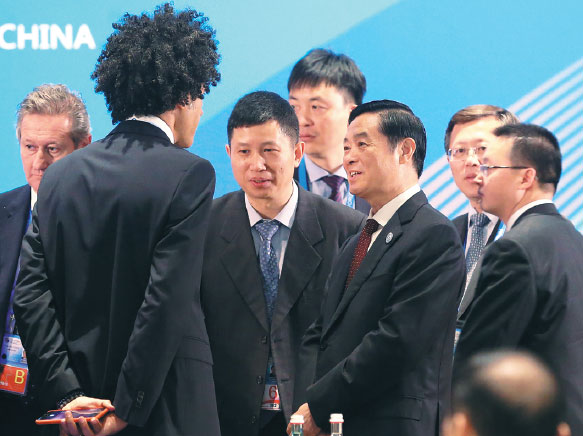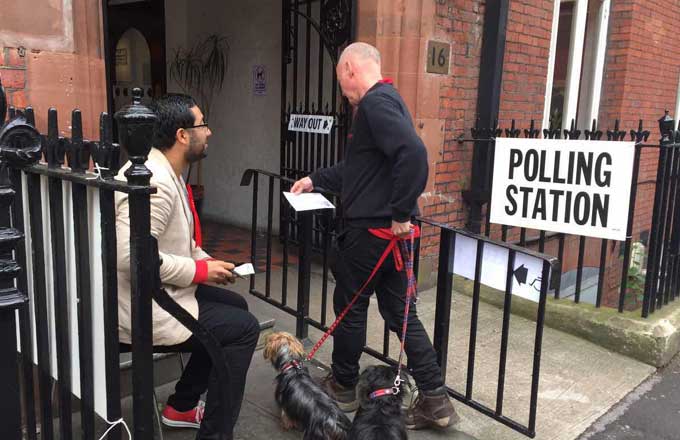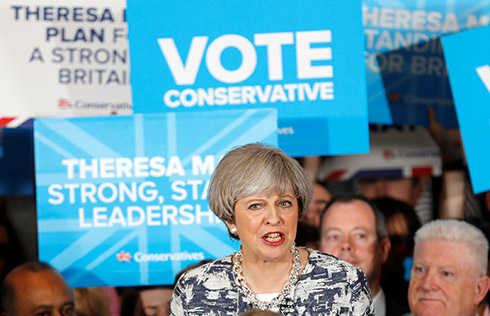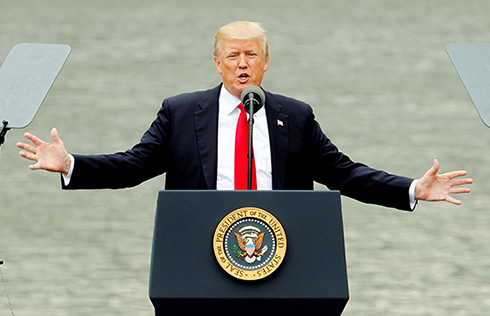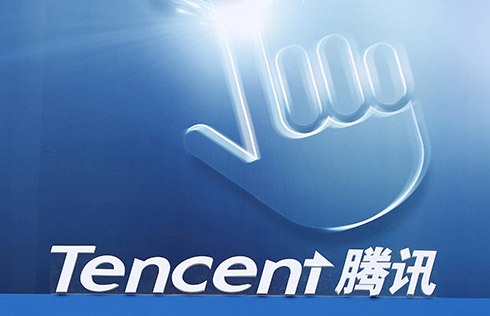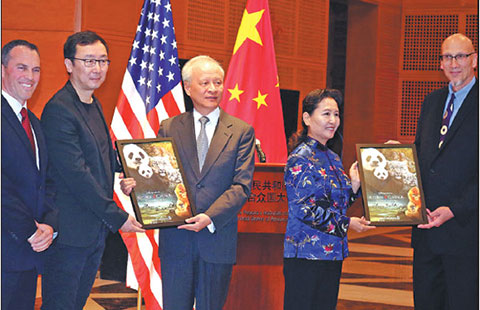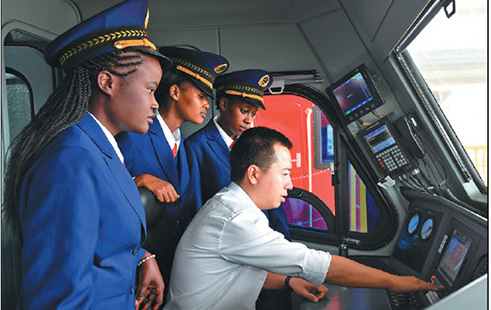Attendees invited to put on thinking caps to lend intellectual support
|
Liu Qibao (third from right), a member of the Political Bureau of the Central Committee of the Communist Party of China and head of the Publicity Department of the CPC Central Committee, meets with participants of the Thematic Session on Think Tank Exchanges of the Belt and Road Forum for International Cooperation in Beijing on Sunday. Han Haidan / China News Service |
Exchanges between think tank institutes provide intelligent support for the construction of the Belt and Road Initiative worldwide, said Liu Qibao, head of the Publicity Department of the Communist Party of China Central Committee.
Liu, also a member of the Political Bureau of the CPC Central Committee, addressed the Thematic Session on Think Tank Exchanges of the Belt and Road Forum for International Cooperation in Beijing on Sunday.
Liu said the Belt and Road Initiative, proposed by President Xi Jinping in 2013, is a seed containing wisdom that is now putting down roots and bearing fruit.
More than 200 experts attended the session, including heads of think tanks, university presidents and international relations researchers.
"The international order is changing, and we need to include the Belt and Road in the research of international relations," Liu said. "China's growth has benefited from the world and at the same time been of benefit to the world."
Zeng Peiyan, chairman of the China Center for International Economic Exchange, said the initiative connects the Eurasian continent and looks to harness new possibilities for regional and global development.
The initiative meets the need for modern countries to grow economically and for establishing a human community of shared destiny, he said.
"On one hand, think tanks can analyze history and look for different ways of working together according to different countries' needs," Zeng said. "On the other hand, we can provide powerful experiences to increase collaboration between China and the world."
Those attending the session included former government officials, who agreed that countries not involved in the Belt and Road Initiative should also take part and work with China.
"The Belt and Road Initiative means a lot to countries not only in Asia and Europe, but also the whole world, and it could be the road that leads the world to communicate," said Kevin Rudd, former prime minister of Australia.
With the world's political instability and the sluggish economy, the Belt and Road Initiative was written into a United Nations General Assembly resolution last year, which was a good start for world development, he said.
"The practical content of the Belt and Road is about investment. It's about investment in infrastructure."
Northern Australia, where there are "vast expanses of land and a smaller population", contains rich opportunities for Chinese infrastructure investors, he said.
"The best way these things are done is through combined investment. So across the enormous potential of northern Australia, we think there are good opportunities both for Chinese and Australian investors."
Henry Paulson, former US Treasury secretary, said the United States should pay more attention to the ambitious initiative.
"I am an American, and I believe US firms, expertise and capital can and should have a role to play. So I hope Americans keep an open mind as the Belt and Road develops and look for opportunities to participate.
"President Xi Jinping has taken a significant step by systemizing China's ideas and initiatives through the Belt and Road. I welcome his commitment to connectivity and the way that China is stepping up to develop not only its own infrastructure but that of other countries."
Wang Qingyun, Tian Ameng and Sun Ruonan contributed to this story.
renqi@chinadaily.com.cn




